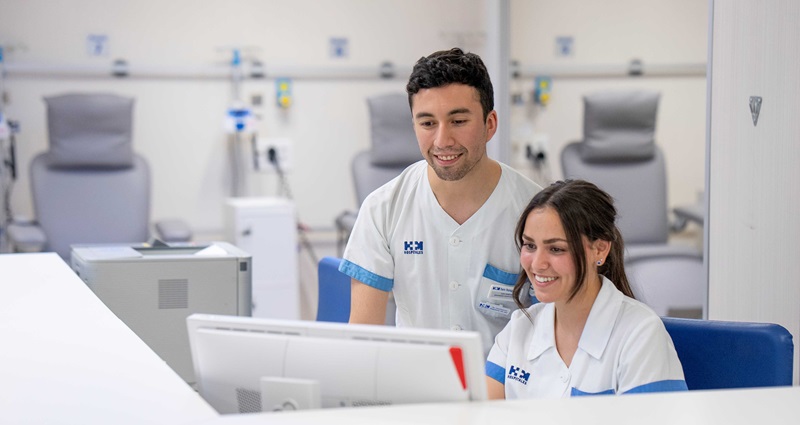Sleep has become a priority for many companies when establishing prevention and care strategies, as well as efficient interventions. In this sense, HM Hospitals has launched ‘We Dream Together‘, a initiative which aims to sleep health analysis and care of your employees. Through this action, the Group wants to help workers who wish to combat chronic insomnia, a pathology that in general figures affects 14% of the adult population, but whose incidence in workers in the health sector is higher. .
This program is part of the ‘Insomnia Chair’, an agreement signed between HM Hospitales, through the HM Hospitals Research Foundation (FiHM), and Idorsia and whose first project is based on the detection of possible sleep disorders among the Group’s workers in order to subsequently implement a prevention program to improve their state of sleep health and well-being. This chair has as its vehicle of expression the so-called ‘Sleep Observatory’, which will initially be in charge of analyzing and studying this area in the employees of HM Hospitales, in order to in the future be able to extrapolate it to all workers in the health sector, one of the most affected by this problem.
To this end, the initiative contemplates the implementation of a free and voluntary information survey for all Group employees, whose responses will be used to evaluate the referral, if necessary, to consultations at the Sleep Unit where the person You will be treated by specialists in a personalized way and where you will receive recommendations regarding lifestyle and sleep hygiene.
Juan Abarca, president of HM Hospitales, has stated that, “we care about the health of the people who work with us, both physically and mentally, so now we are going to focus on ensuring the good health of their sleep, an especially relevant aspect. in professions where shift schedules are established and with higher risk occupational exposure, such as health professions. The primary objective is to improve the quality of life of our employees and secondarily to reduce the existing workplace accidents due to this problem.”
Through this program, HM Hospitales wants delve into the causes that cause this realityand which in general figures affects 40% of the adult population, but whose incidence in health sector workers is higher. To this end, together with the personalized attention and the referral program, the Group has generated a series of audiovisual resources that contain recommendations for the promotion of healthy habits and sleep hygiene to which the Group’s workers have access through a private platform. .
“The study of the sleep health of HM Hospitales workers through an efficient screening and intervention program It will help us identify, not only the causes, but also to be more precise in the solutions to be implemented, which range from prevention measures to personalized care. These vary from the transformation of work and social habits, to the modulation of the emergence of technology when it comes to reconciling the ground, through changes in diet or designing the planning of pharmacological therapies, always accompanied by a specialized health professional. ”, concludes Dr. Marta Ochoa, head of the Neurology Service at HM Hospitales in Madrid.
Research project
Another of the objectives of ‘We Dream Together’ is that some of these workers, with profiles determined and selected by specialists from the different Dream units of the Group, can become part of a project promoted by the FiHM. In this way, a detailed study of the sleep health of these employees will be offered and its analysis will serve to nourish the Sleep Observatory.
14% of the Spanish adult population suffers from chronic insomnia and one in two does not achieve a restful sleep.1,2,3. Recent analyzes have shown that there are more sensitive populations that estimate the prevalence of self-reported insomnia at 38%, such as health professionals. Although it is impossible to act against factors such as exposure to high-risk environments or the person’s gender, early intervention becomes a preventive strategy against the appearance of sleep disorders and other associated disorders such as mental disorders or the risk of suffering from accidents in the work environment4.
The alteration of sleep-wake cycles can produce comorbidities such as anxiety, depression, diabetes, obesity, various cardiovascular, respiratory, gastrointestinal, urinary and neurological disorders in the long term.5. On a functional level it is also affected, reducing cognitive capacity, concentration, productive capacity, reflection capacity, problem solving and energy.6. Hence the importance of researching, educating and disseminating information about insomnia through actions such as the “Insomnia Chair”.
We will continue to inform…
